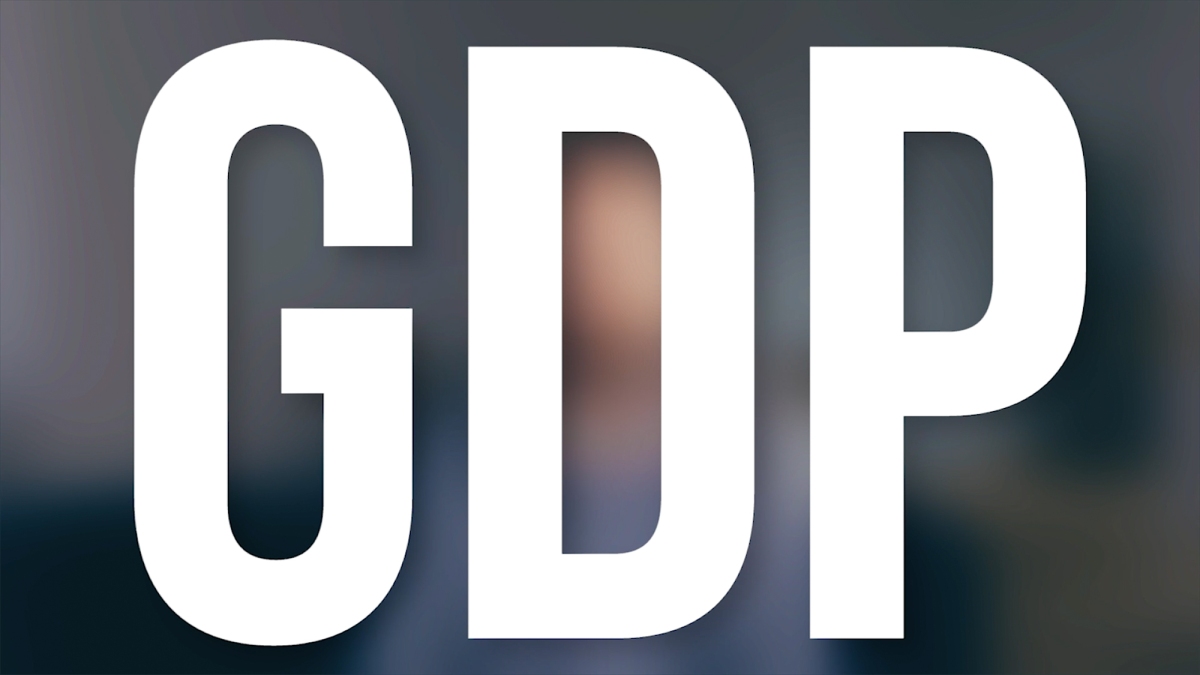Since early 2018, we have spent a lot of time with our protagonist Katherine Trebeck. In the summer of last year, we also traveled to Costa Rica together, to film her while she was speaking at a conference about sustainable fashion, and while she met the Costa Rican First Lady.
On that trip, she told us about an idea that I forgot about later, and that I was again reminded of recently. It is a beautiful thought that very convincingly illustrates how much we must change our notion of what progress actually means.
You have a very tough challenge to overcome when you try to move away from an economy that is measured by the “growth” it produces, in terms of financially measurable output. Or, in other words, by how much it increases GDP every year. GDP is such an established measurement: Everyone has heard of it, it seems so incredibly familiar (even though most people have no idea what it really is), and that’s why people have a really hard time letting go of it.
Now, how does the growth of GDP tell us that a society is improving?
Well, it measures how much a society makes every year, in terms of how much money is being spent on things in that society. And then it assumes that we are doing better if more things are made and sold next year. And so on. Forever. More stuff is better. It’s as simple as that.
We are now finding out that more is not better. Up to a certain point, yes. But after that, more just hurts more: It hurts nature. It hurts equality in society. It hurts the psychological health in a population. It hurts the climate. Etc.
In the western world, and after we’d broken everything in World War II (“thanks” to the nation I come from, Germany), looking at the GDP was probably a good idea, for a while. We could simply count how much we are making and then assume that we’re doing better if we are producing more next year. It meant more people in jobs, more people could afford things, life was getting better. But those days are gone. We are no longer better off if the GDP keeps growing, we’re actually worse off, nowadays. And we’re clearly ruining the planet this way.
So we speak a lot about what might be a better measure. There’s not going to be a single thing that replaces GDP, of course. But if you ask Katherine which single measure she would pick if she could use only one, to analyse if a society is actually doing better year after year, she’ll say this:
Why not get countries to measure the number of girls who bicycle to school?
Ok, this may seem very strange at first glance. What? Rather than looking at how much economic output our country is producing, let’s count girls on bikes?
Think about it. It makes a heap of sense:
If more and more girls ride a bike to school, it means it’s safer and safer to cycle in traffic.
If more and more girls ride bikes to school, it means that bikes are increasinly accepted as a means of transport. And it means less parents’ cars — who are now doing the “parent taxi” thing (a big issue here in Germany) — are polluting the air and creating dangerous traffic jams outside schools.
If more and more girls cycle to school, it means that more and more girls are actually going to school and getting an education, period. That’s an important achievement in many countries.
If more girls are cycling to school, it means that they’ll get used to this mode of transport, it will translate to better health for them in the future, and to less pollution in society in the future.
If more girls go to school on bikes, it means that they are not afraid to be attacked by predators who do them harm.
If more and more girls ride bikes to school, more and more boys will do that, too.
If more and more girls cycle to school, it means that more of them are empowered and unafraid.
I think I agree with Katherine: This is an incredibly convincing measure of progress. And one that deserves serious consideration as a replacement for GDP. And I am not joking one bit.
Free photo by @luizmedeirosph.







